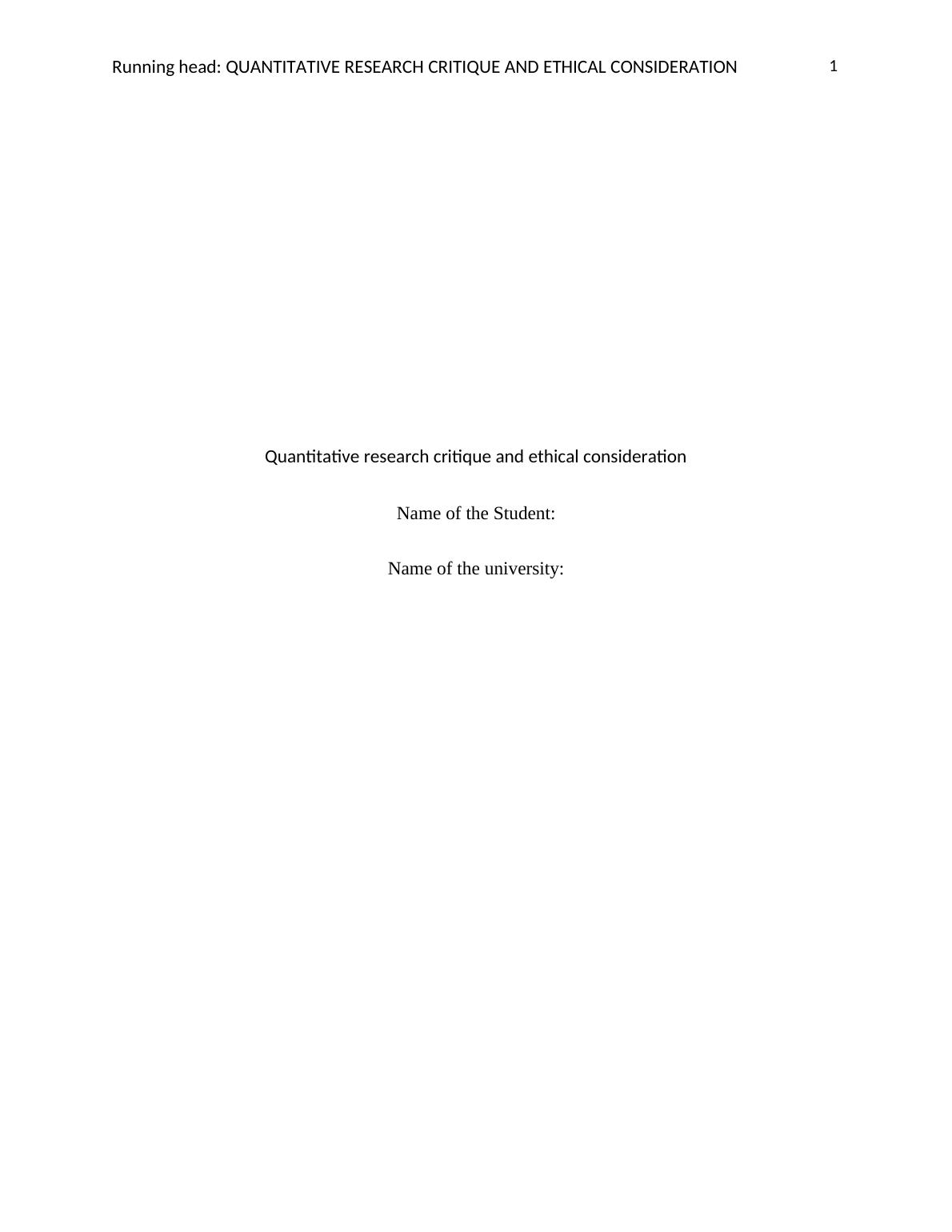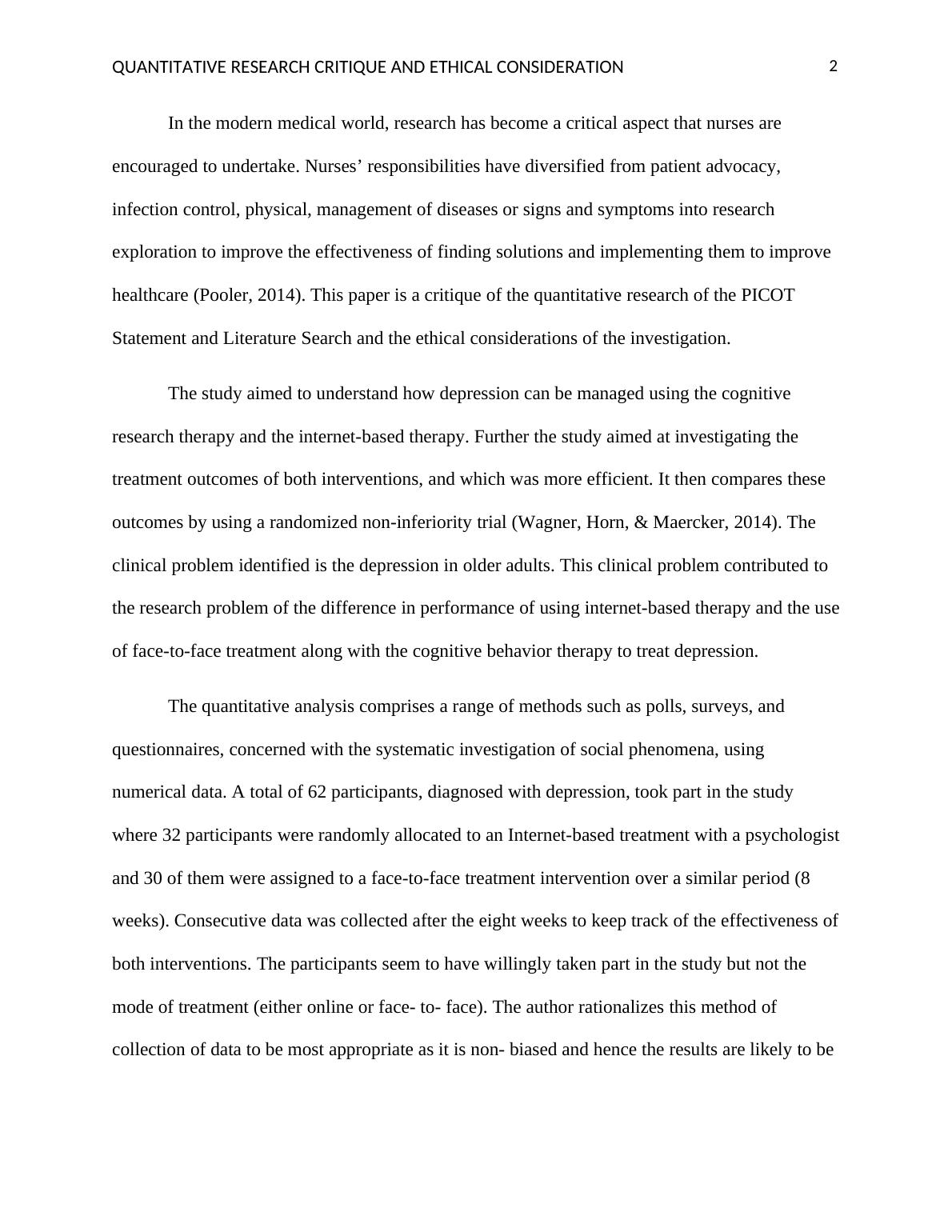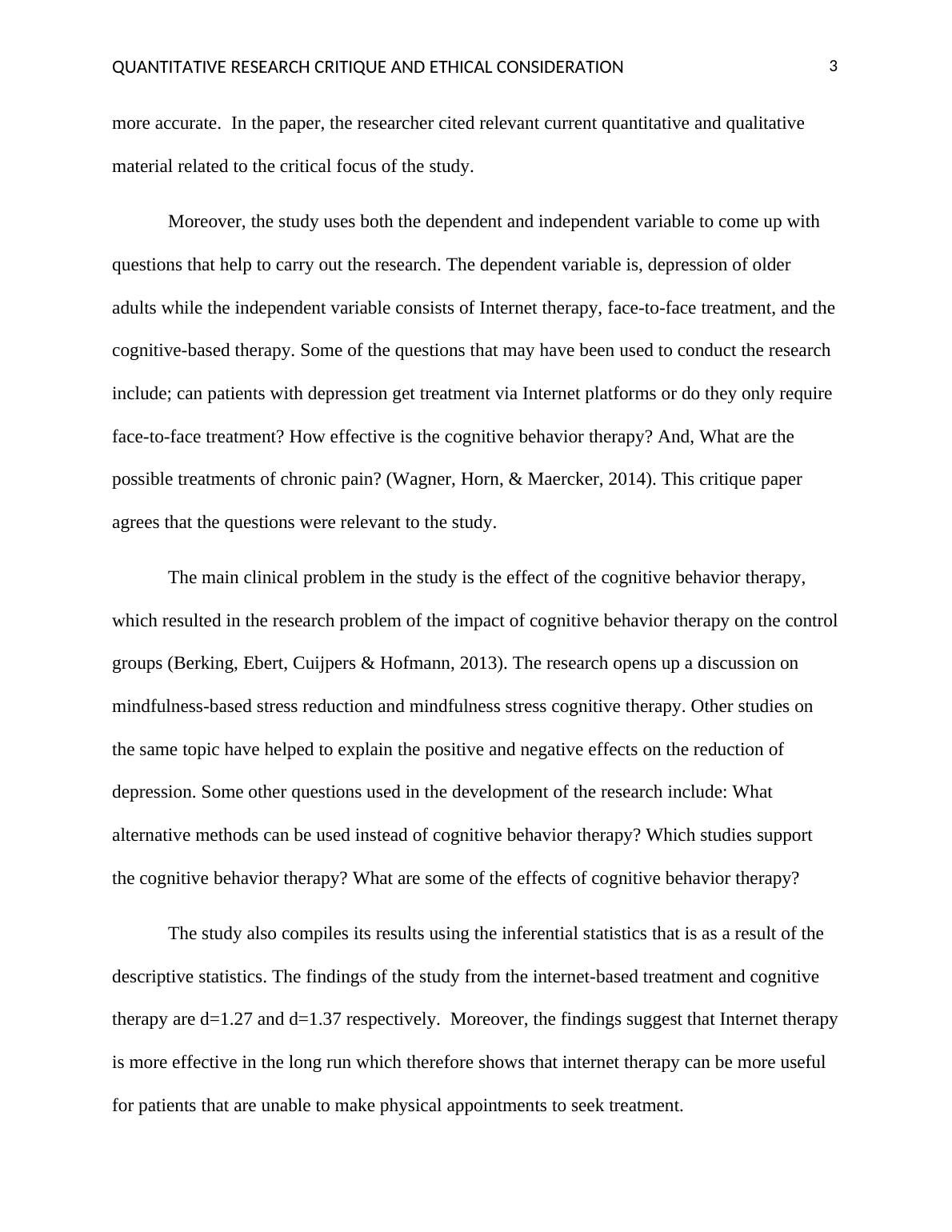Quantitative Research Critique and Ethical Consideration
Added on 2023-06-03
7 Pages1624 Words423 Views
End of preview
Want to access all the pages? Upload your documents or become a member.
PICOT Statement and Literature Search for Evidence-Based Practice in Nursing
|14
|3161
|193
Effectiveness of Cognitive Behavioral Therapy in Treating Depression in Older Patients with Dementia
|16
|3671
|490
Cognitive Behavioral Therapy for Depression in Adolescents
|10
|2158
|91
Critical Analysis of Research
|10
|3195
|134
Critique of a Paper on Cognitive Behavior Therapy for Depression and Self-Care in Heart Failure Patients
|14
|2652
|422
Effectiveness of Supplementary Cognitive-Behavioral Therapy (CBT) over Pharmacotherapy for managing Depression
|15
|3477
|280



